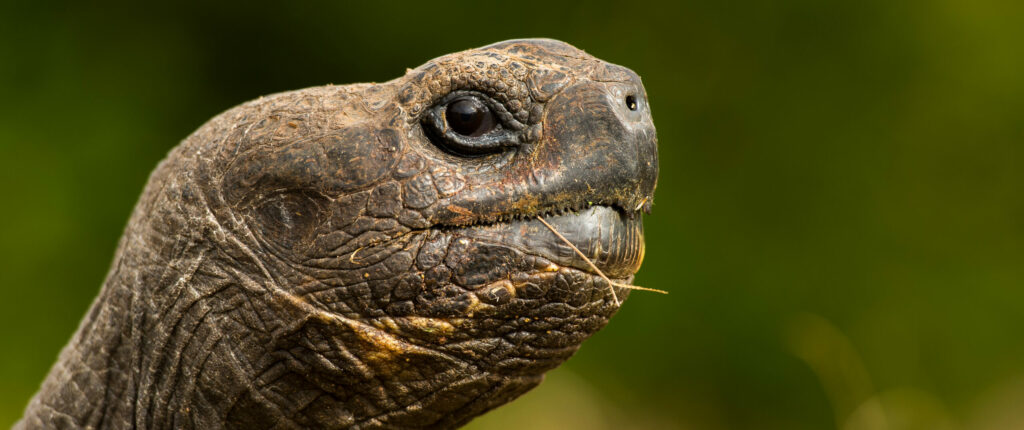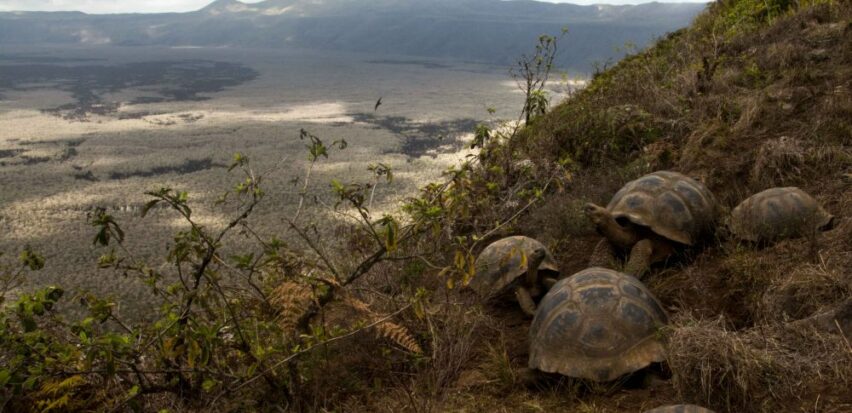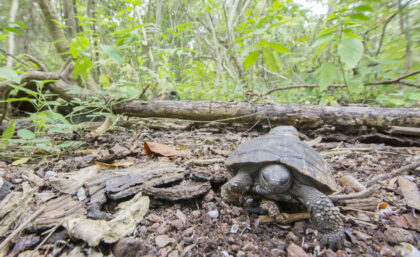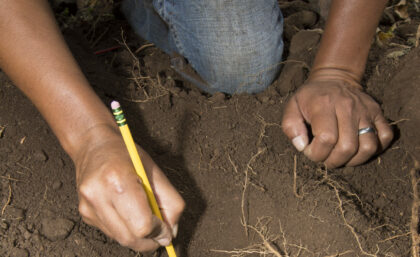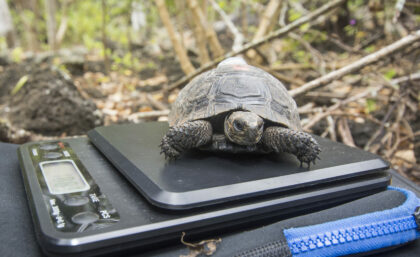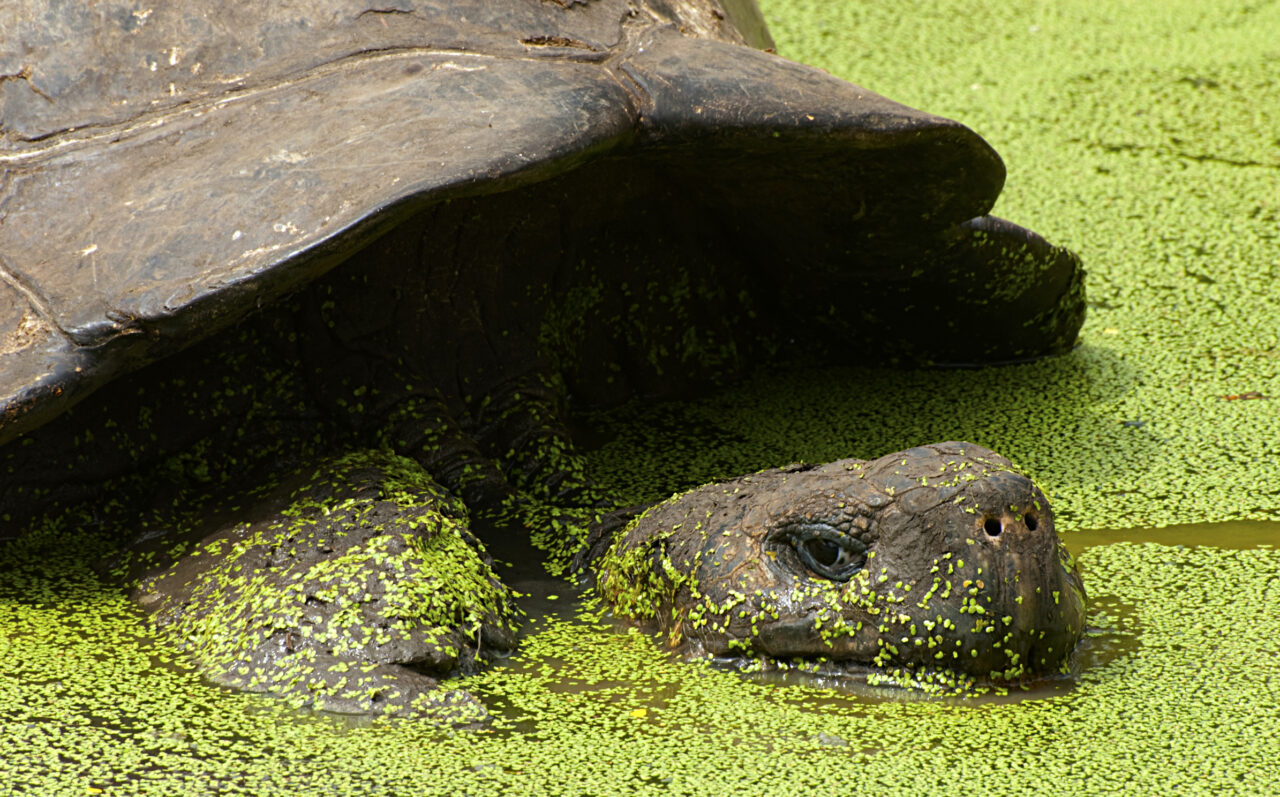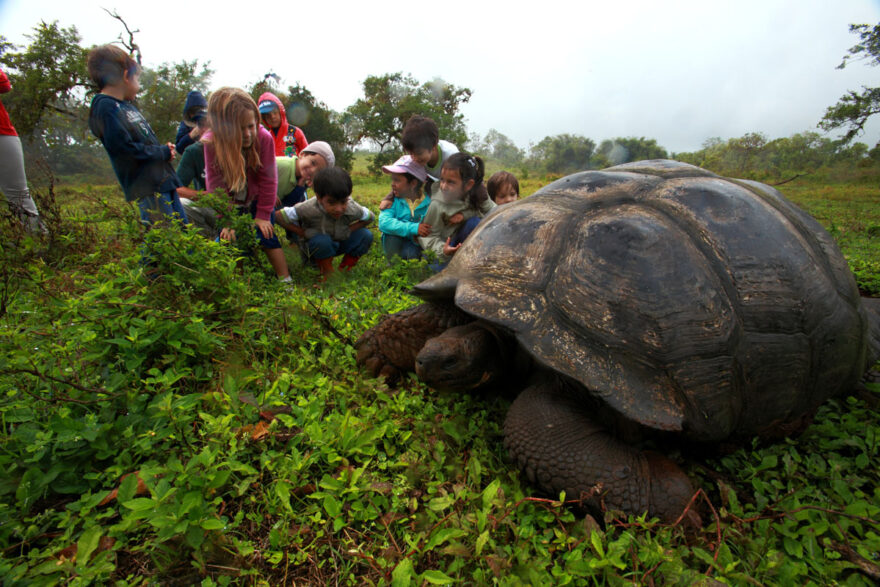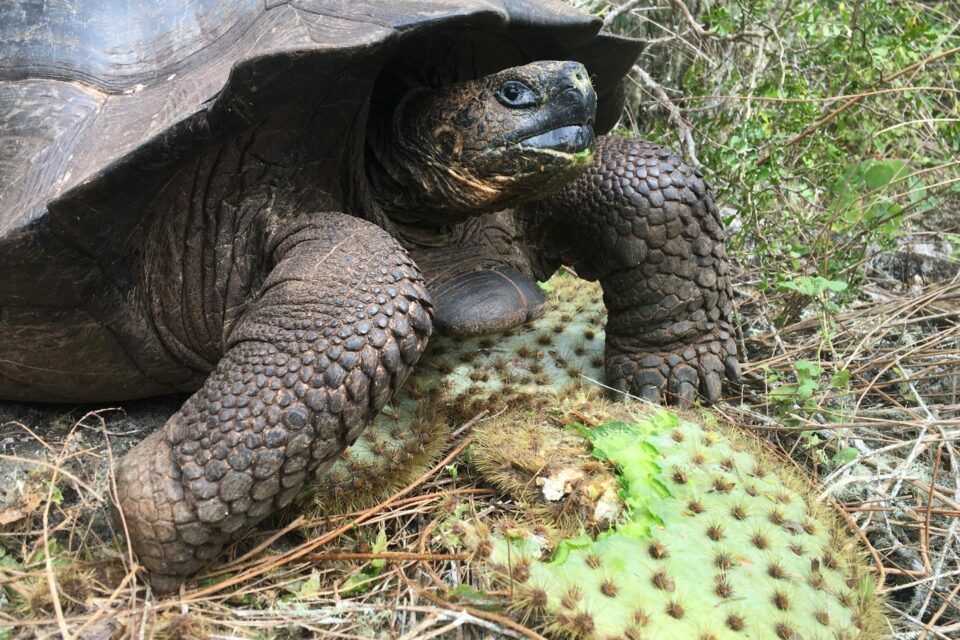
Overview
Galapagos giant tortoises are among the most iconic species in the Archipelago; not only are they the world’s largest terrestrial reptiles, they are also important keystone species, and play a vital role in maintaining the Islands’ unique habitats. Driven to extinction on some islands and the brink of extinction on others, tortoises are slowly recovering but remain threatened. We are supporting the Galapagos Tortoise Movement Ecology Programme (GTMEP) to improve our understanding of the ecology, health and reproduction of these iconic reptiles in order to inform future conservation strategies.
Project Partners





Galapagos giant tortoises in numbers
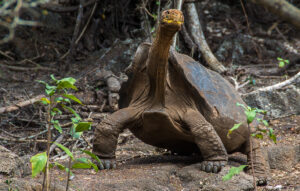
12
out of 15 Galapagos tortoise species survive in the Archipelago
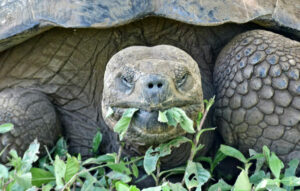
150
years old – the age giant tortoises can live to
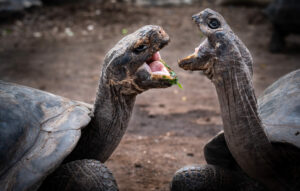
8
islands in Galapagos are now home to giant tortoises
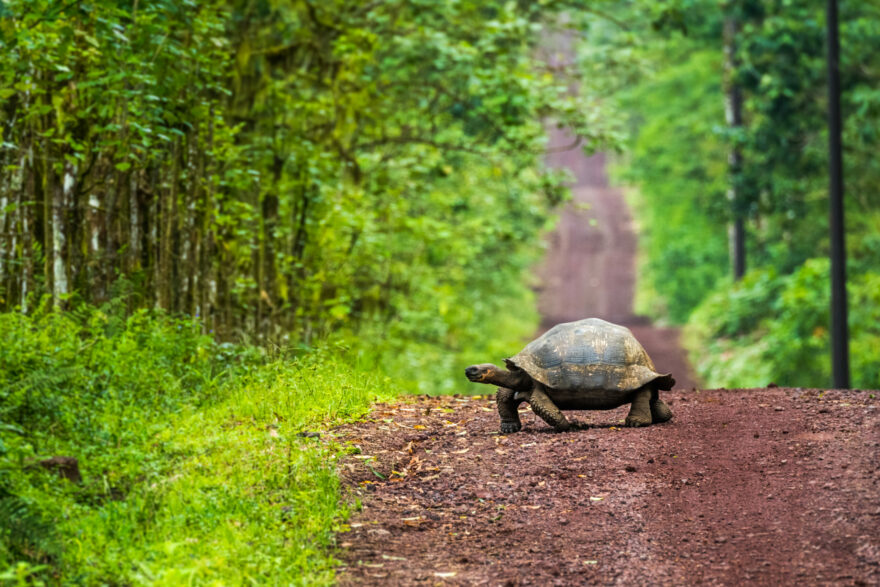
The problem
The major threats to the giant tortoise populations, namely invasive species, urbanisation, climate change and land-use change, all stem from anthropogenic causes. Only through an understanding of the ecological needs of the tortoises can landscape planning successfully conserve their numbers.
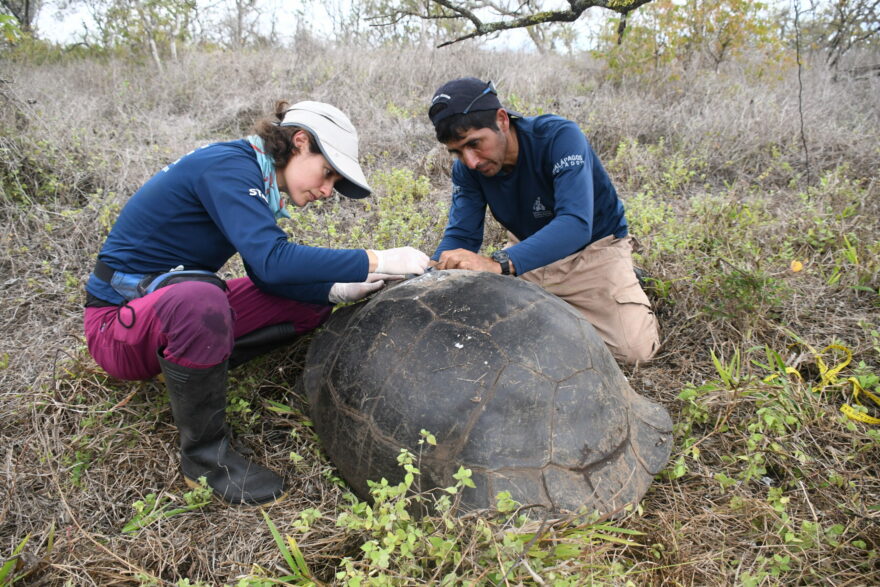
How we’re tackling it
The GTMEP, led by Dr Stephen Blake, addresses this need to better mitigate the negative human effects on tortoises through determining their spatial needs, assessing changes in tortoise populations over time, and looking at the extent to which their health is being impacted by human activity.
Building on over a decade of research we have supported, our focus now is on piloting solutions to reduce key threats, including ‘tortoise-friendly’ farm strategies, strengthening tortoise nest protection with Park Rangers, tackling the sources of environmental and biological pollutants in tortoise habitat (plastic waste, viruses and antibiotic-resistant bacteria), and improving community awareness of tortoise-traffic collisions – all vital actions to protect this iconic species.
Photo gallery
Click on an image to view larger
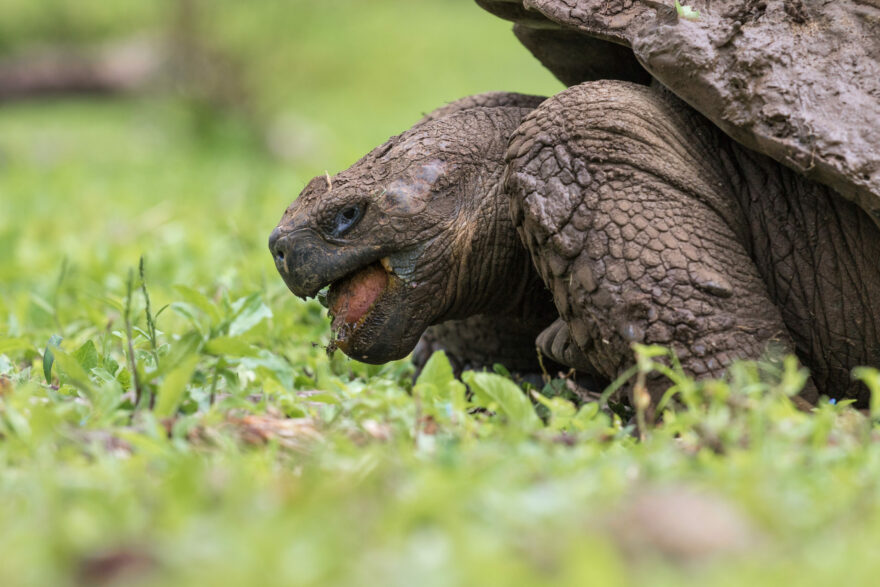
Project goals
- Determine how environmental conditions influence tortoise movement ecology, migration routes, females returning to nesting areas, reproductive success and ecosystem services.
- Determine how environmental conditions influence hatchlings’ movement ecology and their recruitment including nest predation/egg mortality, and hatchling growth and mortality.
- Determine the baseline of tortoise health and place this in relationship to anthropogenic activities throughout the Archipelago.
- Determine key sources and impacts of plastics and agricultural chemicals on giant tortoises.
- Communicate and share the project findings through educational opportunities for young people in Galapagos including virtual and practical activities.
This project is kindly supported by
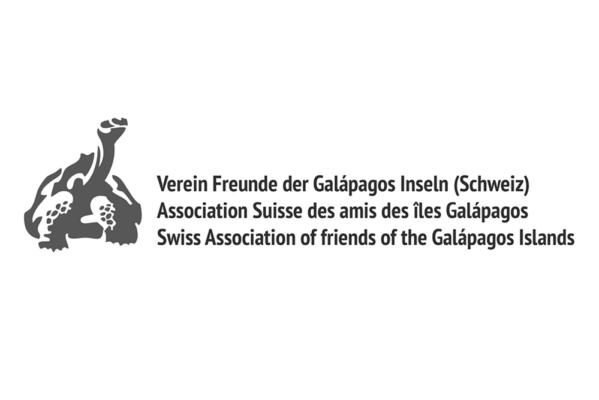
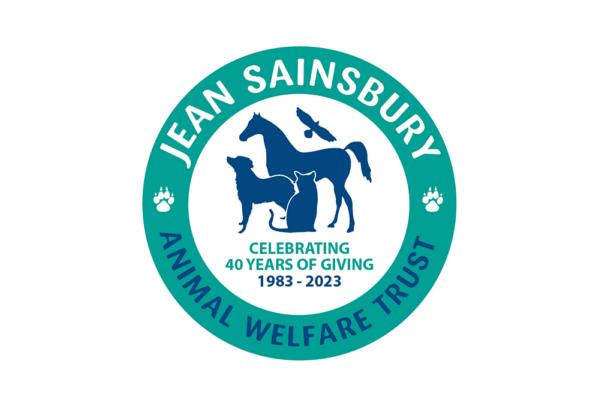
Project updates

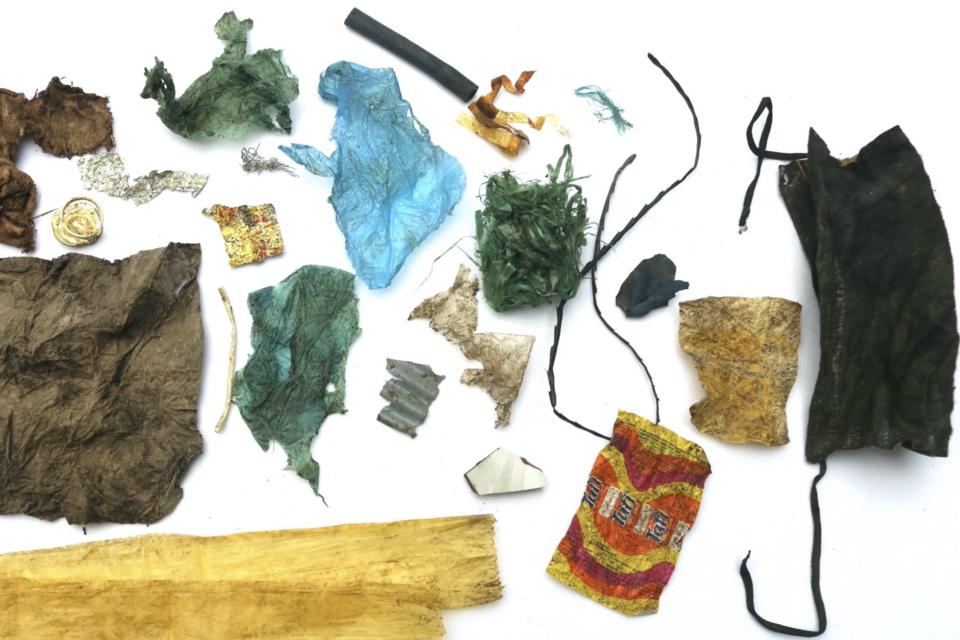
New research shows that Galapagos giant tortoises are ingesting plastic waste
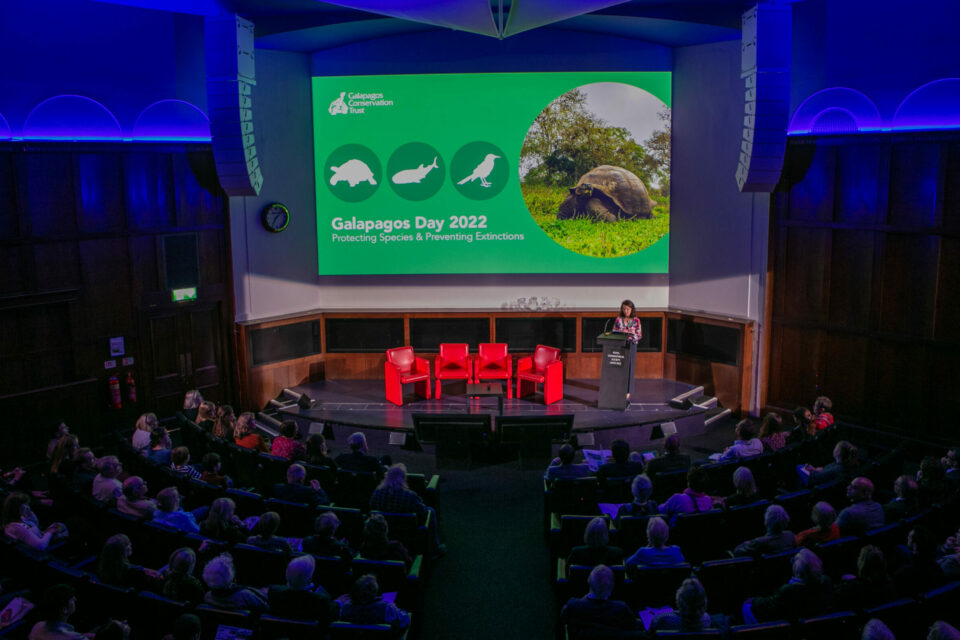
Galapagos Day 2022: Protecting Species & Preventing Extinctions
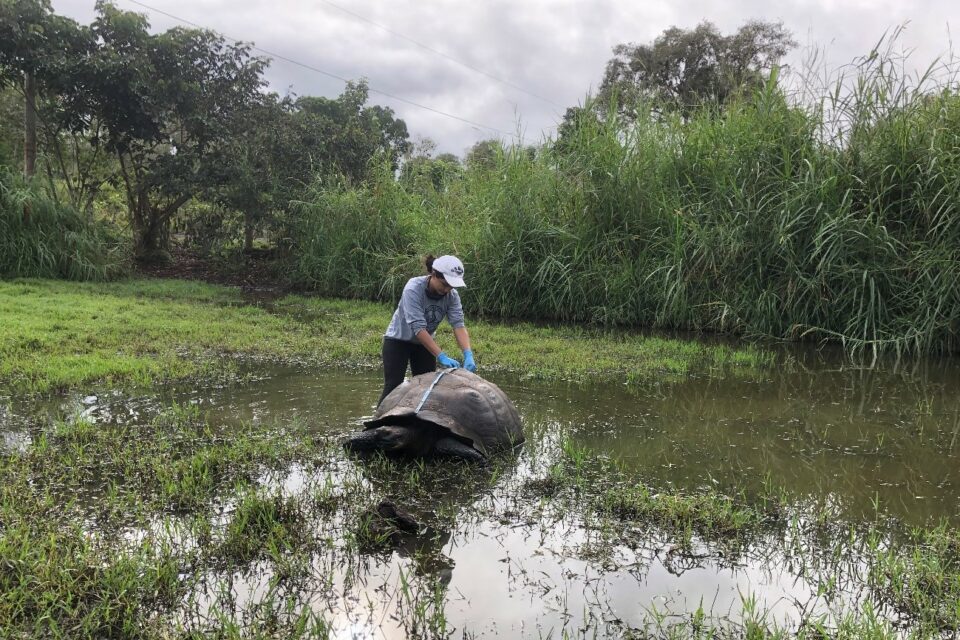
Women in Science: PCR in Galapagos Giant Tortoises
How you can help
Please help us save the Galapagos giant tortoise by donating today or by adopting a tortoise.
